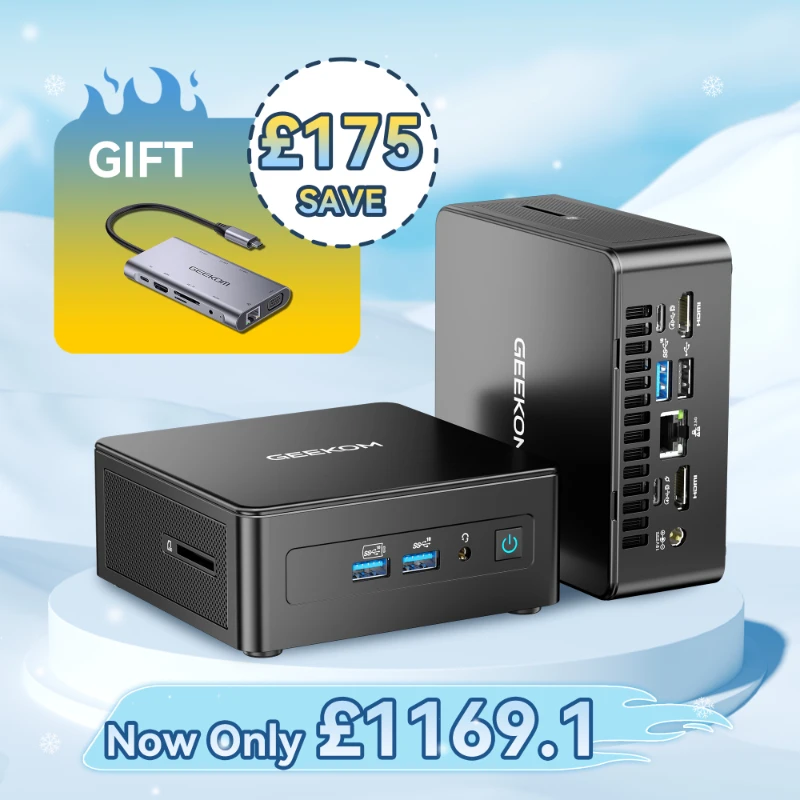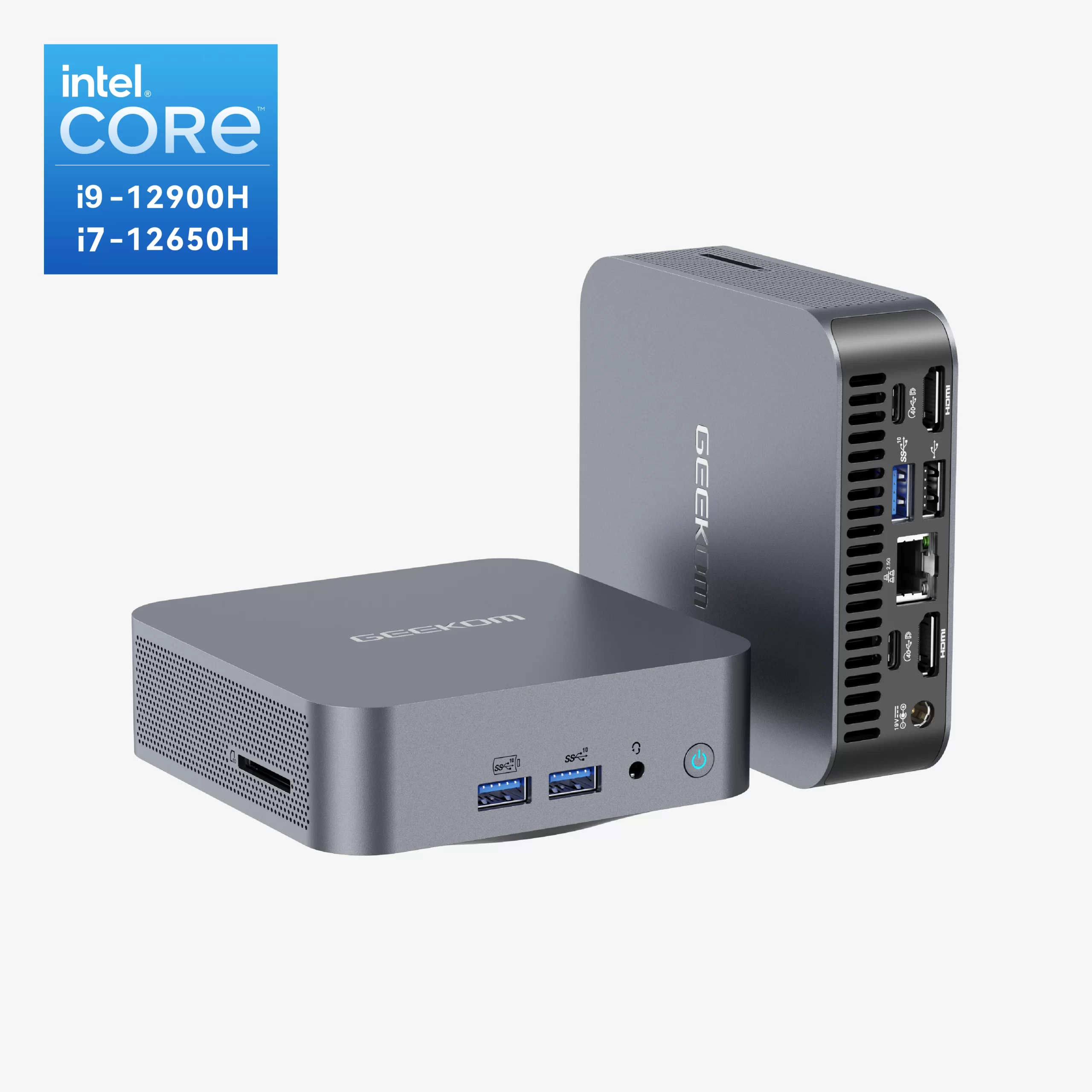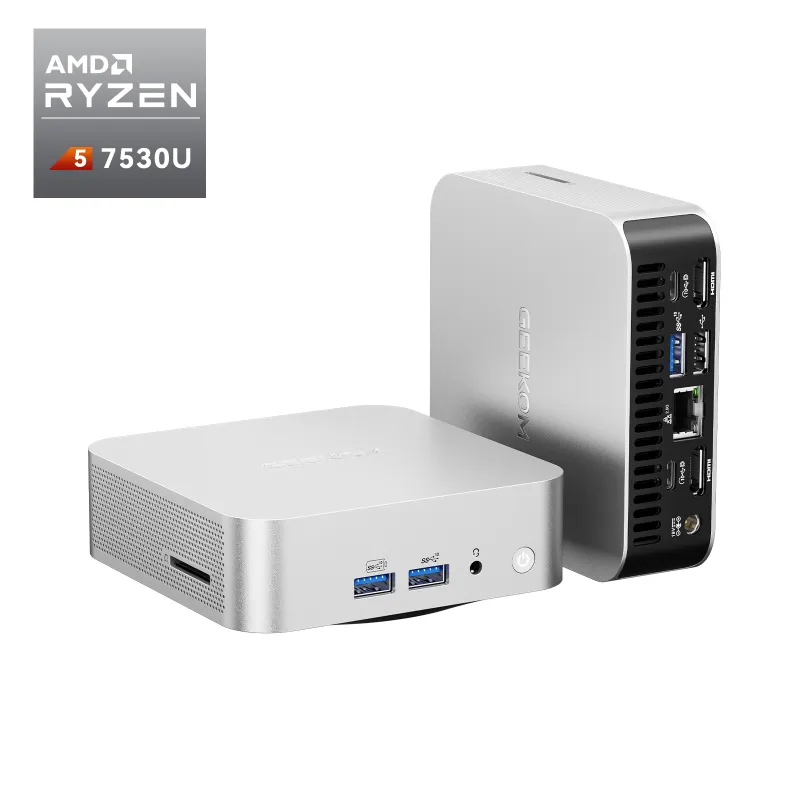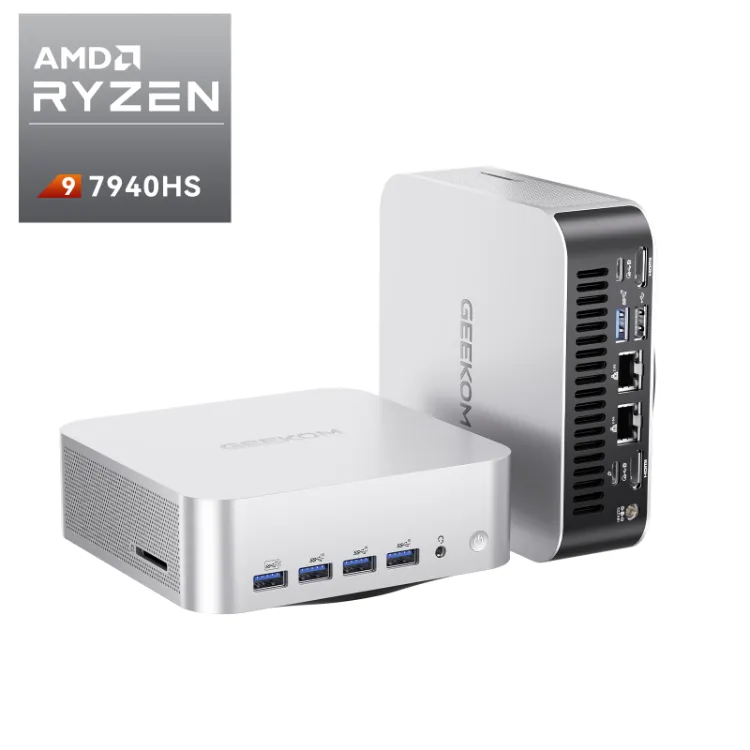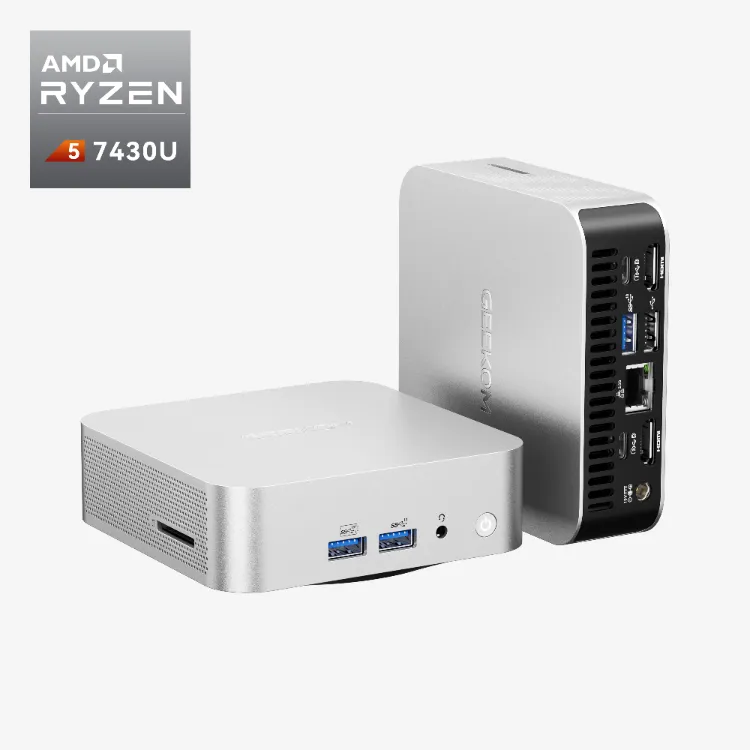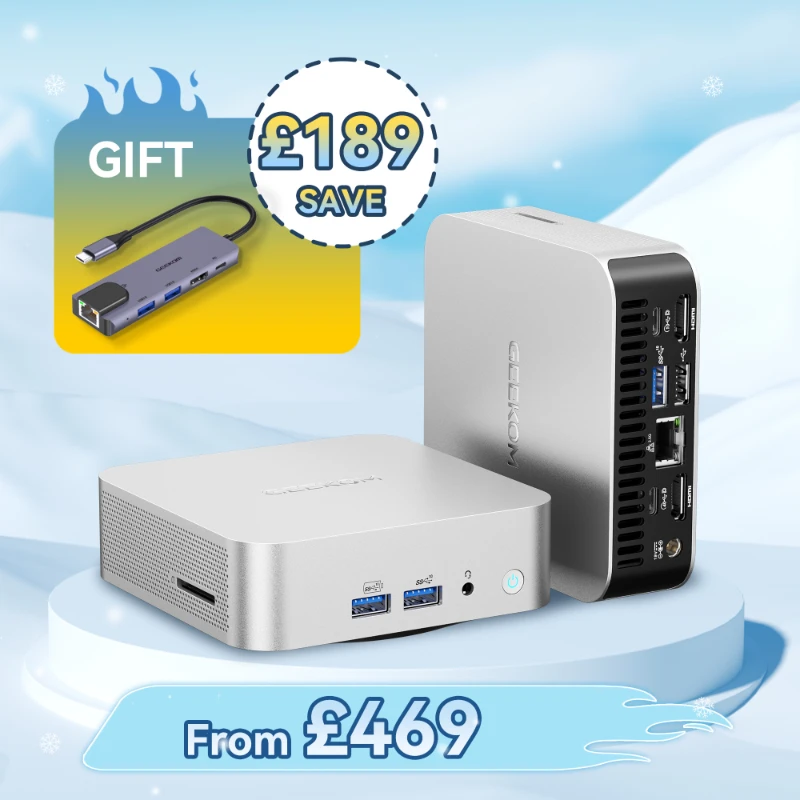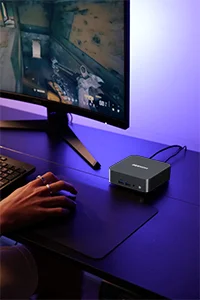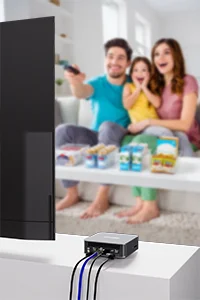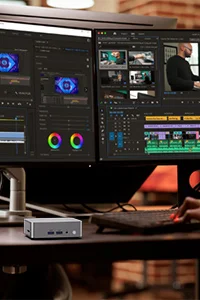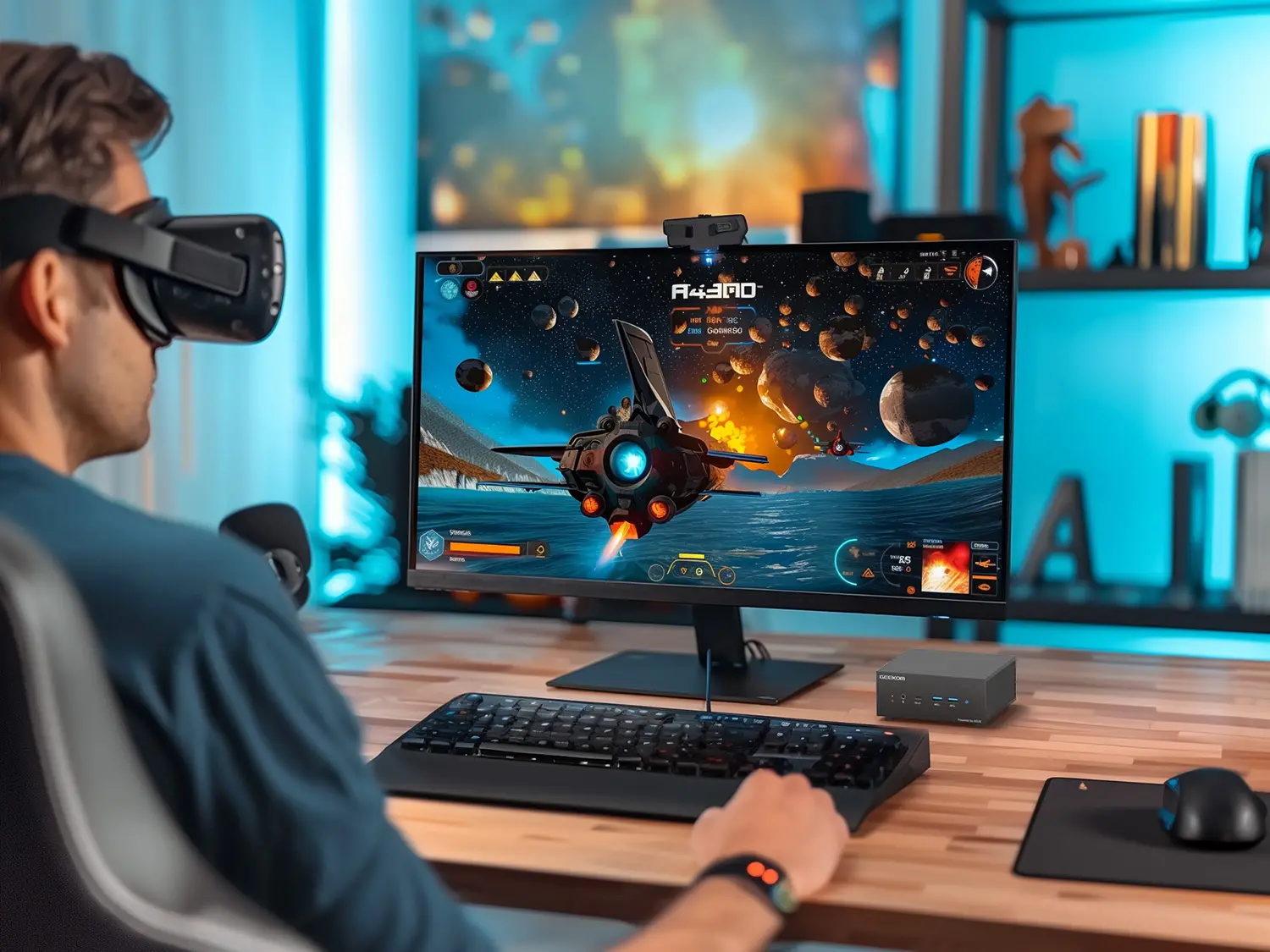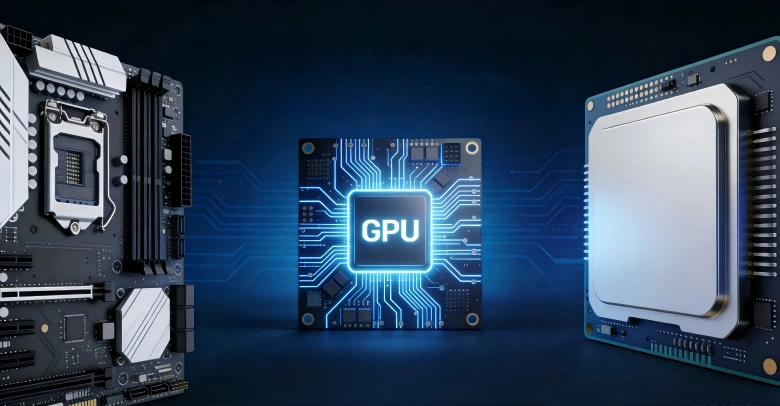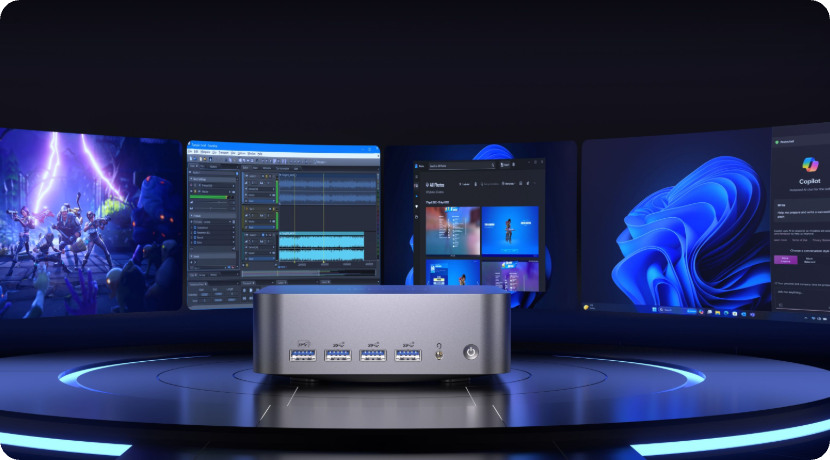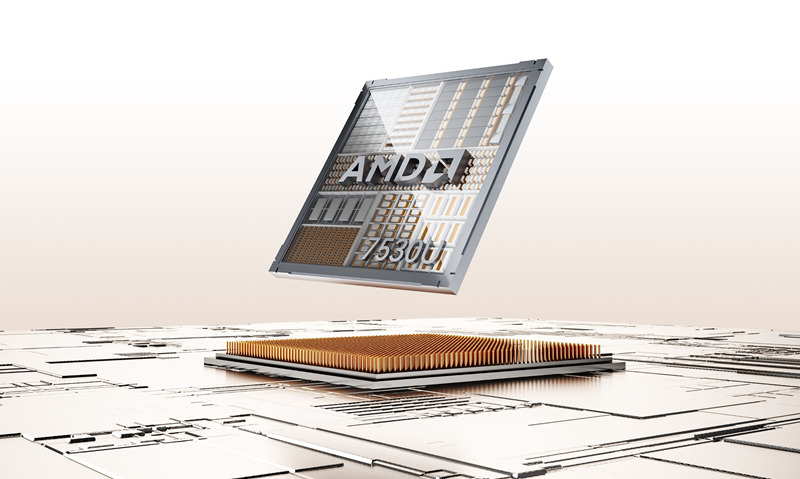Mini PCs are stand-alone compact sized desktop computers which can fit into a little corner of your desk. The power of a mini PC is enough to let you seamlessly run your day-to-day activities on the computer, like accessing the internet, browsing, office applications, and media playback. These low-energy consumption boxes are often seen as a cost efficient alternative to your typical full-sized desktops.
While the instinctual choice of a gamer would be to go for the typical desktop, more recently the mini PCs are also considered as an option. The question is whether they are worth it and can fully accommodate your gaming needs. This is exactly what we’ll be answering today, let’s look at how suitable a mini PC is for gaming!
Performance and Cooling
To understand how suitable it would be for gaming, the Mini PC gaming performance has to be grasped properly before you make any decisions. Here’s an outlook on its overall performance, features, and usability.
Performance and Thermal Management
We know the most important things to consider before committing a bank check is to see how well the CPU operates, and whether the graphics are crystal clear. And of course, you’ll need to know if the mini PC can back those CPU intensive games. Let’s take a look at its performance in that regard.
- CPU
The performance of a mini PC CPU ranges from energy-efficient processors suitable for simple day-to-day tasks to more powerful ones that can handle your intensive apps. When looking for a portable gaming setup, you’ll have to consider the higher end mini PCs.
Most of the mini PCs use fast intel processors to make them more suitable and speedy for several tasks like editing, streaming, projects etc. This high functioning PC falls under the category of high end products. They’re the most suitable for intensive activities, and can easily run your high-res games.
These could come in Intel Core i7/i9 or AMD Ryzen 7/9 series processors, excellent for handling demanding games, and allows multitasking. The more exciting aspect is that it can come with high clock speeds and in-built graphics. These clock speeds in mini PCs range from 2.5 GHz to 5.0 GHz, which is ideal for modern games. They also come equipped with 6 to 8 cores or more. This is above what a typical game requires. Some of the best mini PCs for gaming include the Intel NUC 12 Enthusiast, the MINISFORUM Venus Series UM773, or the Zotac Zbox Magnus One.
- GPU
Typically in a Mini PC, the graphics processing is managed by integrated GPUs which use a shared memory from the CPU. However, this is more compatible with basic daily tasks When it comes to your gaming needs, you might want to look at certain Mini PCs which are equipped with dedicated graphic cards that come with their own memory.
We know the GPU is the heart and soul of any gaming PC, even more so when it comes to a mini PC. This is why you should consider the mini PCs with a powerful GPU for seamless gameplay. These include the NVIDIA GeForce RTX 3060 / RTX 4060 and AMD Radeon RX 6700 XT / RX 7600. Both of these offer good performance for 1080p and 1440p gaming, along with ray tracing capabilities. For the occasional gamer, there are more budget friendly and high performance options available like the NVIDIA GeForce GTX 1650 / 1660 Super and GEEKOM GT13 Pro Mini PC 13th Gen.
High end CPUs can benefit from having an increased system RAM, especially for gaming or multitasking. Otherwise, you’ll be stuck with buffering games and more reliance on SSDs and HDDs. For GPU intensive tasks like gaming, you should aim for a minimum of 16GB of system RAM up to 30GB.
Cooling Challenges
The Mini PC is indeed the epitome of space efficiency, but because of its compact size, it can face cooling problems too. The heating mainly comes from the GPU and CPU, especially during demanding tasks like intensive gaming. If this isn’t adequately managed, it can cause overheating. Overclocking and resource intensive operations on the PC would potentially lead to thermal problems, and in the long term could make the MIni PC unfit for usage by damaging the main components.
So how do you arrange sufficient thermal management?
Mini PCs use a range of cooling methods, such as air coolers, heatsinks, or sometimes liquid cooling systems. For most tasks, heatsinks and air coolers are sufficient to reduce the heat during continuous gaming hours. But for longer runs and different levels of gaming on a compact PC, more advanced methods are recommended like liquid cooling or heat pipes. These advanced tools can be found in newer mini PC models like the MEGAMINI G1, which is a water-cooling PC.
Customization and Cost
When it comes to upgradability, your immediate thought must be a desktop because of the options it offers to customise and change components. But the Mini PC may lack a little in this area as the upgrading options are restrictive. This is because many components are integrated into the PC, which means if you need an upgrade, you’ll have to make a new purchase. This can prove costly in the longer run, especially if you compare it to a one-time investment in a desktop.
Some mini PC models do allow for upgrades, but these are limited to increasing the RAM or swapping out storage devices. In this regard, if you compare the Mini PC vs Desktop for gaming, the mini PC may not seem very appealing.
As a nifty solution, avid gamers can look into external GPUs for mini PCs when they want high performance graphics for gaming. These eGPUs are connected via a Thunderbolt 3 port, which may not exist in some models but is still a viable option for many (like the Intel NUC or Apple Mac Mini). The only drawback perhaps is that some users may not be able to afford it, but it does improve graphics and usability without any replacements needed.
Gaming Experience
Even with some expected limitations, Mini PCs still offer a solid gaming experience for a multitude of games. Generally, they’re better suited for less demanding games like Fortnite, Minecraft, and indie titles, especially at lower to medium settings. Even the smaller GPU specs can give you some impressive graphics.
If you look at the higher end PCs or eGPUs, then you’ll even be able to enjoy games like Call of Duty and Cyberpunk 2077, but at a reduced resolution of 1080p. For enhanced immersion, your Mini PC can also support a multi-monitor setup, but this may put a lot of strain on very demanding games. The perfect storage type for a portable gaming PC is the traditional HDD because the SSDs can increase lagging and buffering.
Even without 4K resolutions, you can enjoy many games at lower settings. The eGPUs also enable improved frame rates and high settings for modern AAA games.
Practical Considerations
Mini PCs and laptops are the champions of portability, convenience, and efficiency. So when you’re looking for a compact solution, your decision will come down to these two choices. Mini PCs are ultra-portable but they will need extra components for gaming on the go. Still, they’re ideal for tight spaces, and travelling if you already own the additional components needed.
One of the best things about a Mini PC is its little usage of energy and how it can save you money on electricity consumption, which makes it good for long term usage. Moreover, the mini PCs perform very quietly, but these pros balance out with the cooling problems discussed above. The bottom line is to find a cooling solution that doesn’t compromise other aspects.
Special Features
Some Mini PCs are equipped with the power to handle VR headsets too. Devices like the ZOTAC MAGNUS series support popular VR headsets. Additionally, many mini PCs double as media centres, which support 4K playback and integrate into home entertainment easily. This makes it ideal for gaming and multimedia apps.
Market Overview
Some of the best mini PCs for gaming in the market can offer you an experience similar to your desktop PC. Here’s a list for your different needs:
- The Intel NUC 12 Enthusiast. This comes with dedicated graphics and resolution that go up to 1440p for some games. It’s also equipped with several ports. This is our top but most expensive recommendation.
- GEEKOM AX7 Pro Mini PC AMD Ryzen™ 9 7940HS– Another high-end product packed with 32GB of RAM and 1TB of SSD for fast performance. This comes with integrated graphics and offers strong visuals.
- GEEKOM MEGAMINI G1 – The Megamini G1 is a miniature marvel that integrates decent power, peak sustained performance (thanks to liquid cooling), and all the I/O you need for work and play in a tiny chassis.
Summary and Future Outlook
MIni PCs offer portability, energy efficiency, and space saving benefits, but they bring limitations like reduced cooling capacity and weak integrated graphics. If you’re a casual gamer, mini PCs have a lot of viable mid range options for you.
Conclusion
To top it off, Mini PCs can be a very good alternative for many different users. If you’re someone who enjoys the occasional game on the go and your laptop keeps heating up, the mini PC could be a great fit for you. It all comes down to your personal habits and preferences as a gamer.
FAQs about Mini PCs for Gaming
Can Mini PCs Run Modern AAA Games?
Some mini PCs can run less demanding AAA games. However, running the latest titles on ultra-high settings may be challenging due to their limited graphics capabilities.
Are Mini PCs as Upgradeable as Traditional Gaming PCs?
Mini PCs offer some upgrade options, but they typically don’t provide the same level of upgradability as traditional gaming PCs.
Do Mini PCs Support VR Gaming?
Many mini PCs are VR-ready and can support virtual reality gaming. It’s important to ensure the Mini PC’s specifications are compatible with your desired VR headset.


